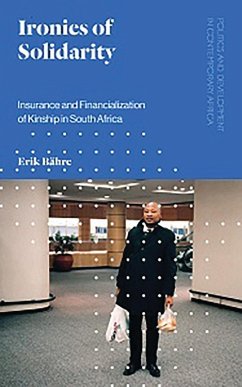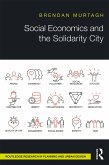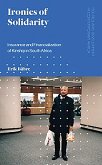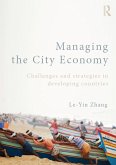Set in one of the world's most unequal and violent places, this ethnographic study reveals how insurance companies discovered a vast market of predominantly poor African clients. After apartheid ended in 1994, South Africa became a 'testing ground' for new insurance products, new marketing techniques and pioneering administrative models with a potentially global market.
Drawing on Rorty's notion of irony for understanding how the contradictions inherent to solidarity affect inequality and conflict as well as drawing on a vast array of case studies, Ironies of Solidarity examines how both Africans enjoy the freedoms that they have gained in financial terms and how the onset of democracy effected the risks faced in everyday life. Bähre examines the ways in which policies are sold and claims are handled, offering a detailed analysis of South Africa's insurance sector.
Drawing on Rorty's notion of irony for understanding how the contradictions inherent to solidarity affect inequality and conflict as well as drawing on a vast array of case studies, Ironies of Solidarity examines how both Africans enjoy the freedoms that they have gained in financial terms and how the onset of democracy effected the risks faced in everyday life. Bähre examines the ways in which policies are sold and claims are handled, offering a detailed analysis of South Africa's insurance sector.









